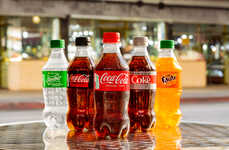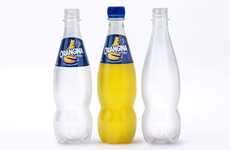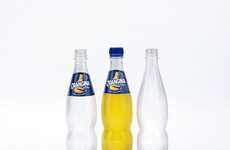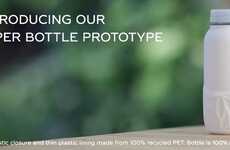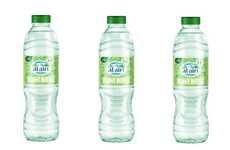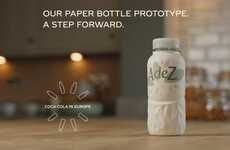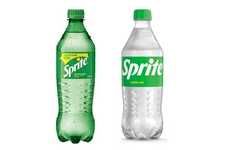
Coca-Cola's PlantBottle is Made from Sugar Cane Rather Than Petroleum
Laura McQuarrie — June 6, 2015 — Eco
References: coca-colacompany & qz
At food and technology conference Expo Milan, Coca-Cola unveiled 'PlantBottle,' the first PET bottle made from 30% plant-based materials.
Rather than being made from non-renewable materials, this bottle is made by converting sugar cane and waste into to plastic. At the end of its life, the PlantBottle is fully recyclable. Coke estimates that the use of the PlantBottle packaging will help to save more than 319,000 metric tons of carbon dioxide from being emitted. As far as implementation goes, Coca-Cola is aiming to "convert all new PET plastic bottles, to PlantBottle packaging (up to 30% plant-based) by 2020."
Now that some of the biggest brand names in the food industry are making huge moves to cut out preservatives, artificial flavors and unhealthy sugar as ingredients, at the same time, more thought is being put into packaging that is kind to the environment.
Rather than being made from non-renewable materials, this bottle is made by converting sugar cane and waste into to plastic. At the end of its life, the PlantBottle is fully recyclable. Coke estimates that the use of the PlantBottle packaging will help to save more than 319,000 metric tons of carbon dioxide from being emitted. As far as implementation goes, Coca-Cola is aiming to "convert all new PET plastic bottles, to PlantBottle packaging (up to 30% plant-based) by 2020."
Now that some of the biggest brand names in the food industry are making huge moves to cut out preservatives, artificial flavors and unhealthy sugar as ingredients, at the same time, more thought is being put into packaging that is kind to the environment.
Trend Themes
1. Plant-based Packaging - The trend of using plant-based materials for packaging is gaining momentum, offering a sustainable and environmentally-friendly alternative to traditional packaging.
2. Sustainable Innovation - Companies are increasingly focusing on sustainable innovations such as PlantBottle that utilize renewable resources and reduce environmental impact.
3. Reducing Carbon Footprint - The need to reduce carbon emissions is driving the development and adoption of plant-based soda bottles like PlantBottle, which can help companies significantly lower their carbon footprint.
Industry Implications
1. Beverage Packaging - The beverage packaging industry can benefit from embracing plant-based materials such as PlantBottle to meet consumer demands for eco-friendly packaging options.
2. Food and Beverage - The food and beverage industry can adopt plant-based packaging solutions to align with latest consumer preferences for sustainable and environmentally-responsible products.
3. Plastic Manufacturing - The plastic manufacturing industry can explore and invest in plant-based alternatives like PlantBottle to reduce reliance on petroleum-based plastics and mitigate environmental concerns.
4.2
Score
Popularity
Activity
Freshness


